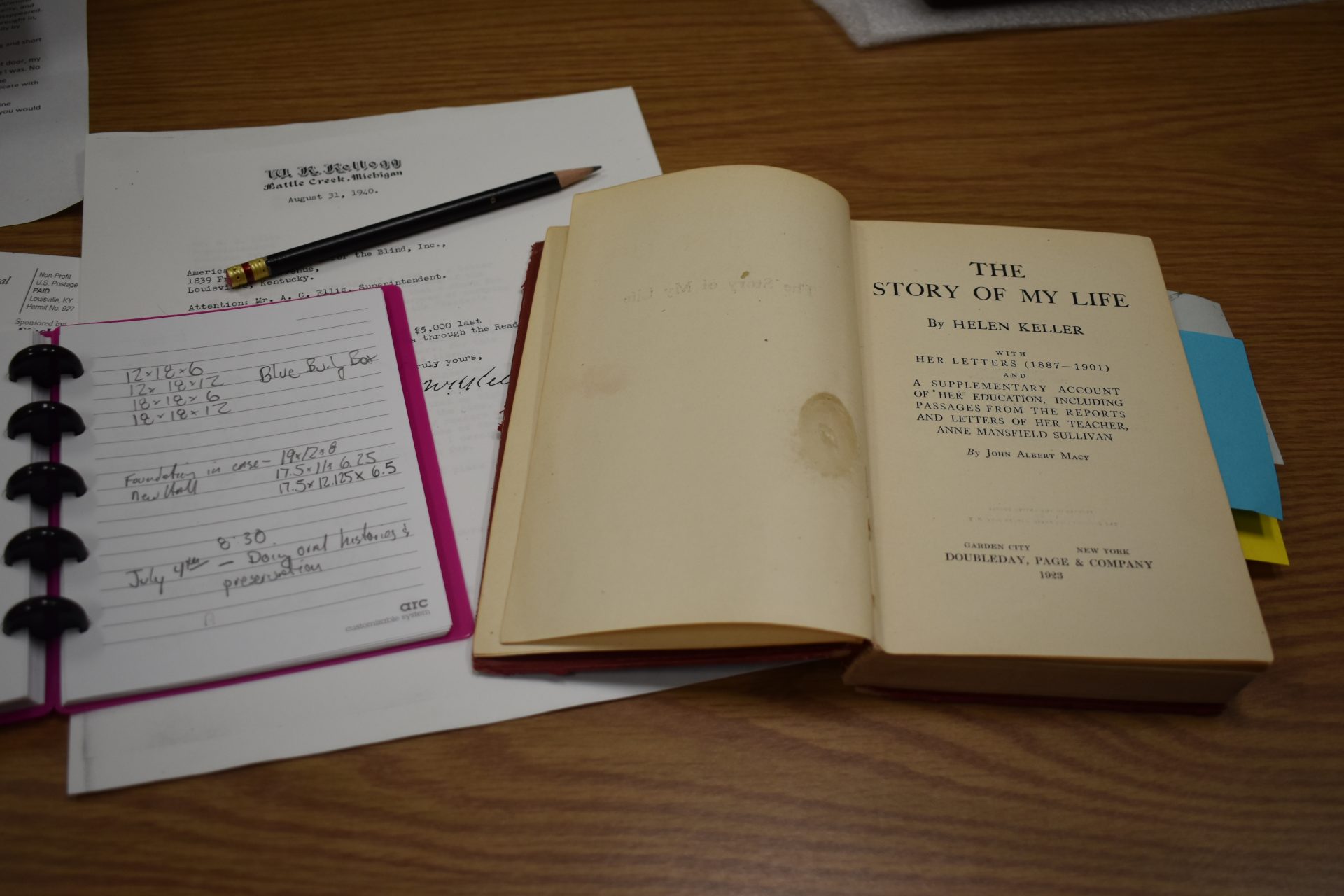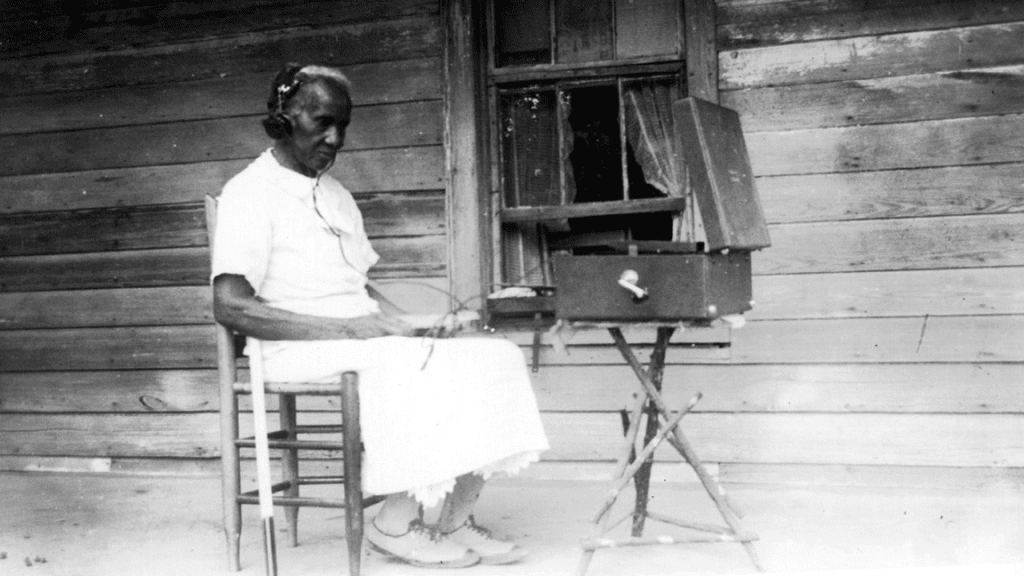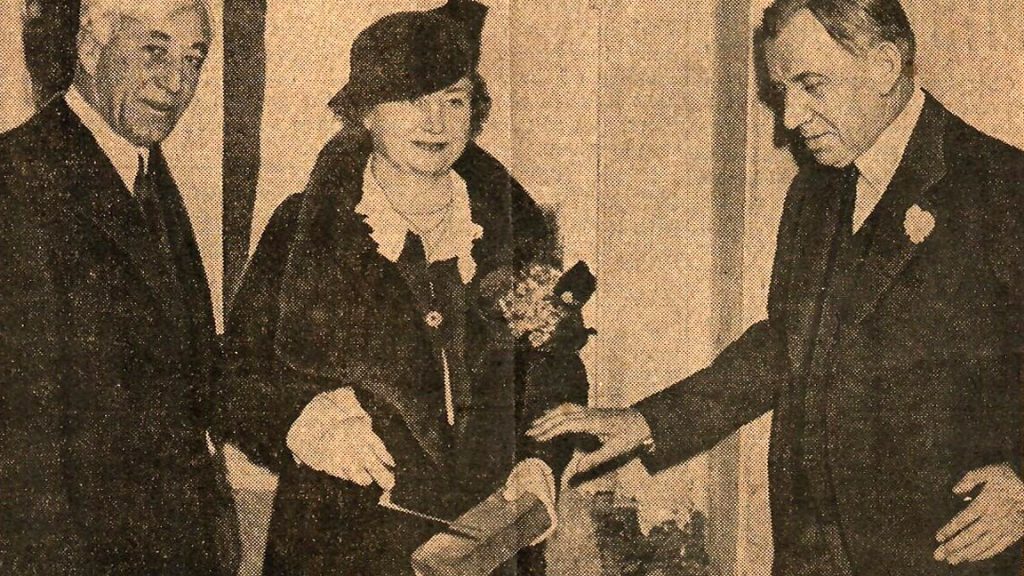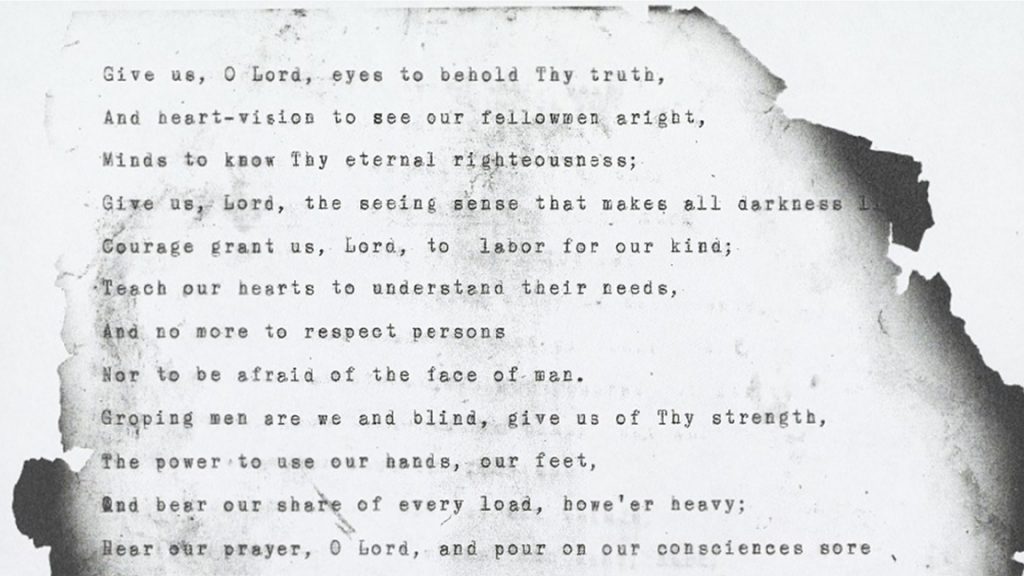Thinking on Tasks Left Unattended

They say the best advice to young writers is to write about what you know. So rather than come up with something original for my blog this month, I’m just looking around the bomb crater that is my office in the aftermath of the APH Annual Meeting. In front of me is an interesting braille slate made by Karl Menzel in Hamburg, Germany around 1910. We bought it from a collector in France. Unlike most slates, the pits in the lower frame are shaped like inverted pyramids. We have better than a hundred different braille slates in our collection. Somebody needs to catalog that.
And perched precariously on a stack of boxes is a collection of tactile maps sent to me by friends in Colorado cleaning out a storage closet. Most of them came originally from APH. Some are embossed on paper, others printed in a tactile ink, and even more are vacuum formed in plastic. We had a visitor yesterday who attended the Michigan School for the Blind and she spoke wistfully about how much she wished she had access to these kinds of maps when she was in school. Somebody needs to go through them and figure out how they compare to stuff we already have.
And then there are the books. One false move and I’ll be buried and they won’t find me until spring. Most are about Helen Keller, as we’ve just finished hosting our amazing Keller Symposium in September. Somebody needs to organize and reshelve these. But, as often happens, as I pick up each old friend, it is hard not to crack the thing and look around. Front and center is my desk reference copy of Helen Keller’s autobiography, The Story of My Life. Obviously a classic, it was well worn and well loved by a museum supporter long before he donated it a few years ago.
My copy is a 1923 Doubleday, Page, & Company edition of Keller’s story. She originally published it in Ladies Home Journal as a series of articles in 1902, and it appeared for the first time in book form in 1903. My copy is missing its spine, and its pages are littered with post-it notes from numerous projects, dating back to the labels for our 2012 traveling exhibit, Child in a Strange Country. It is consistently one of the most frequently downloaded items from our collection on the Internet Archive. Our Migel Library has added thousands of titles on blindness to the Archive since we acquired it in 2009 from the American Foundation for the Blind. You can read the wonderful and insightful book, The Story of My Life, online. And you can browse the Migel catalog, including links to other books, online as well.
And while you’re doing that, I’ve got some things around here that I’ve got to take care of.
Mike Hudson is the Director of the Museum of the American Printing House for the Blind.
Share this article.
Related articles

Finding Sadie
“The blind veterans here in the Helen Keller class are able, thru talking books, to obliterate the tedious hospital hours...

The Storied Life of a Time Capsule
Time capsules have long been an intriguing way for people to communicate through the ages, be they historians or grade...

Hidden Legacies of Helen Keller
Burned manuscript recovered from the wreckage of Arcan Ridge, 1946. Photo AFB Helen Keller Archive As we get ready...
